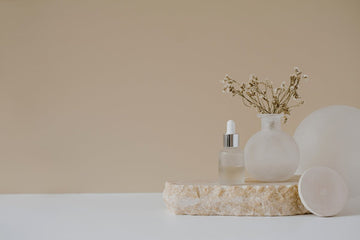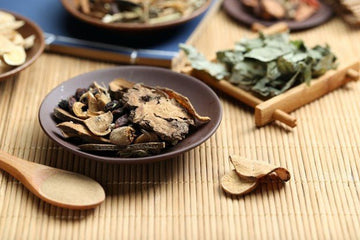The Heart, according to Traditional Chinese medicine, is the king of all organs. When the heart is unbalanced or not functioning well, all the other organs will be impacted.
In Traditional Chinese Medicine, all our organs are inter-related and our heart is the master of our being, providing the force that coordinates all activity- physical, mental, emotional and spiritual. The Heart houses our spirit or shen (神) and mind, so the heart is the organ most often involved in psychological imbalances. Properly nourished and balanced, the heart maintains our innate wisdom, contentment, and emotional balance. When heart yin is deficient, we can experience symptoms such as palpitations, poor memory, anxiety, insomnia and restlessness.
Our heart is responsible, along with our Liver, for controlling blood circulation. Blood moistens and nourishes our entire body, but it also is the basis for all mental activity. Normal mental activity is reliant on sufficient blood and proper blood circulation.
Our heart controls the blood and blood vessels. When our heart is healthy, it pumps blood vigorously through the vessels to all parts of our body, nourishing our organs and maintaining function and vitality. Hence a deficiency in heart function can appear as pale complexion, cold hands and feet, palpitations, insomnia, and emotional disturbances.
Therefore heart health is crucial if we want to maintain our outer beauty according to TCM, when our heart is strong and possesses sufficient blood, our complexion is rosy, and we look robust and healthy. When the heart blood is deficient or lacking, we will look pale and unhealthy. If our heart yang or qi is deficient, our complexion may appear dull, bluish, especially in the lips.
When we are happy, calm and relaxed or loved/in love- there is a natural glow or radiance on our faces that says it all!
How do we know our Heart Health?
We can have an idea of our heart health from simple signs and listening to our body.
- Bitter is the taste associated with the Heart: If you find yourself craving bitter foods your Heart may be asking for support.
- If you have difficulty sleeping it may be a sign that your Heart function needs support.
- Our heart controls our bodily fluids so if you find you are perspiring excessively, it can signal a Qi or energy deficiency of the Heart.
- The tongue is the sense organ that’s related to the Heart hence the condition of the heart can be seen by observing the tongue. The tongue will be a healthy red color when our heart is in balance. If there is insufficient blood in the Heart, the tongue may appear pale. If there is blood stagnation, the tongue will reflect this with a dark purple color. Cracks or lines down the center of the tongue also indicate a potential heart function issue.
- Our facial complexion also reveals the state of the heart. A pale complexion can indicate insufficient blood, and an overly red face can signal excessive heat.
Ways to improve heart health
- SMILE! Smiling stimulates the heart and brings a sense of internal peace
- Before sleeping, having a peaceful image or scene to relax your mind from the day’s work or stresses
- Empty your mind by doing some meditation exercises
- Do specific Qigong exercises that benefit the heart
- Go for slow and relaxing walks to calm your mind and heart
- Eat foods that are warming, nourishing and beneficial for the heart
What foods are good for the heart?
In general, the colour red is associated with the heart. So red foods are seen to nourish the heart. Most are warm in nature and nourish the blood and improves circulation and yang energy. These foods are high sources of natural iron, Vitamin A, beta-carotene, lycopene. They are known to protect cell membranes, maintain blood vessel elasticity to maintain healthy blood flow and also have anti-oxidizing properties for anti-aging benefits for our skin.
Examples of foods:
- Tomatoes, Hawthorn berries, Berries
- Beetroot, Cherries, Watermelon
- Longan Fruit/ Dried Longan
- Red beans
- Saffron, Chilli
Chinese Herbs that support the heart:
- Ginseng ( 人参)
- Tian Qi ( Panax Notoginseng, 田七)
- Astralagus (Huang Qi, 黄芪)
- Codonopsis ( Dang Shen党参)
- Red Dates (红枣)
- Lily Bulb (Bai He,百合)
- Solomon’s Seal (Yu Zhu , 玉竹)
- Angelica (Dang Gui, 当归)
- Clears heat from the heart- Honeysuckle flower (金银花)




